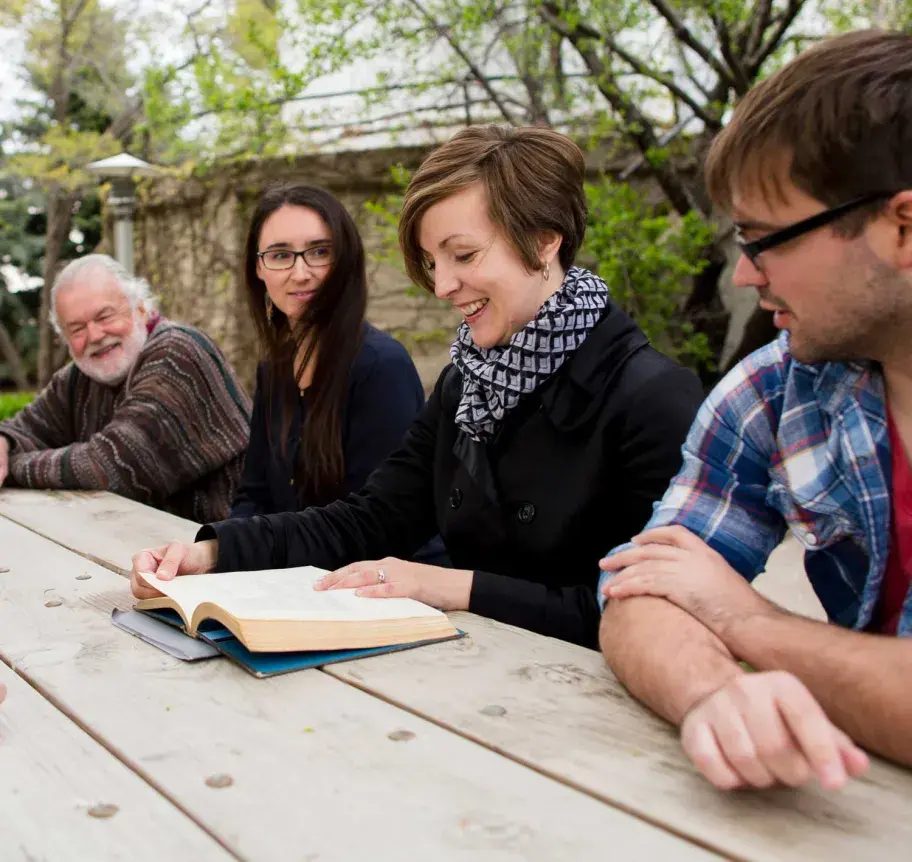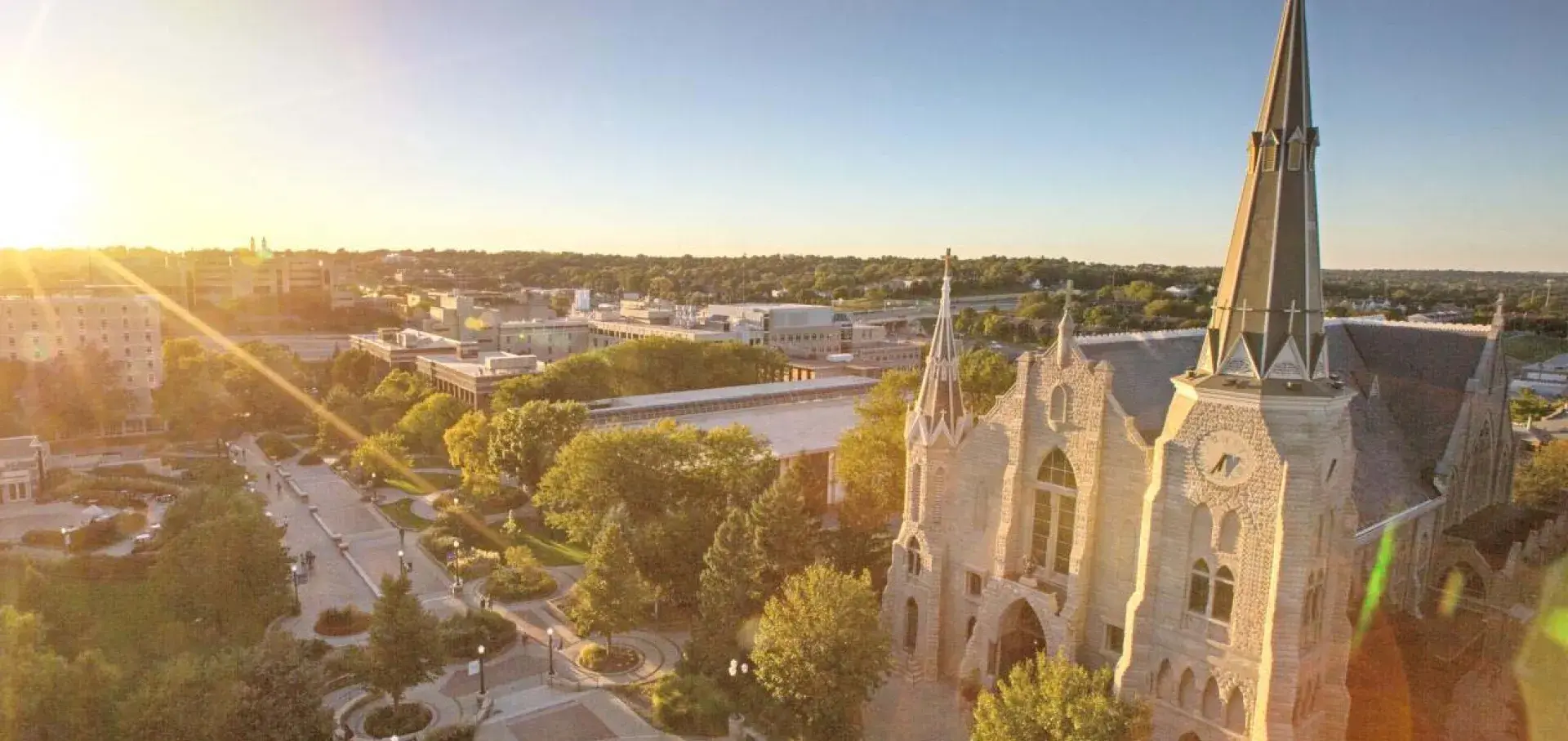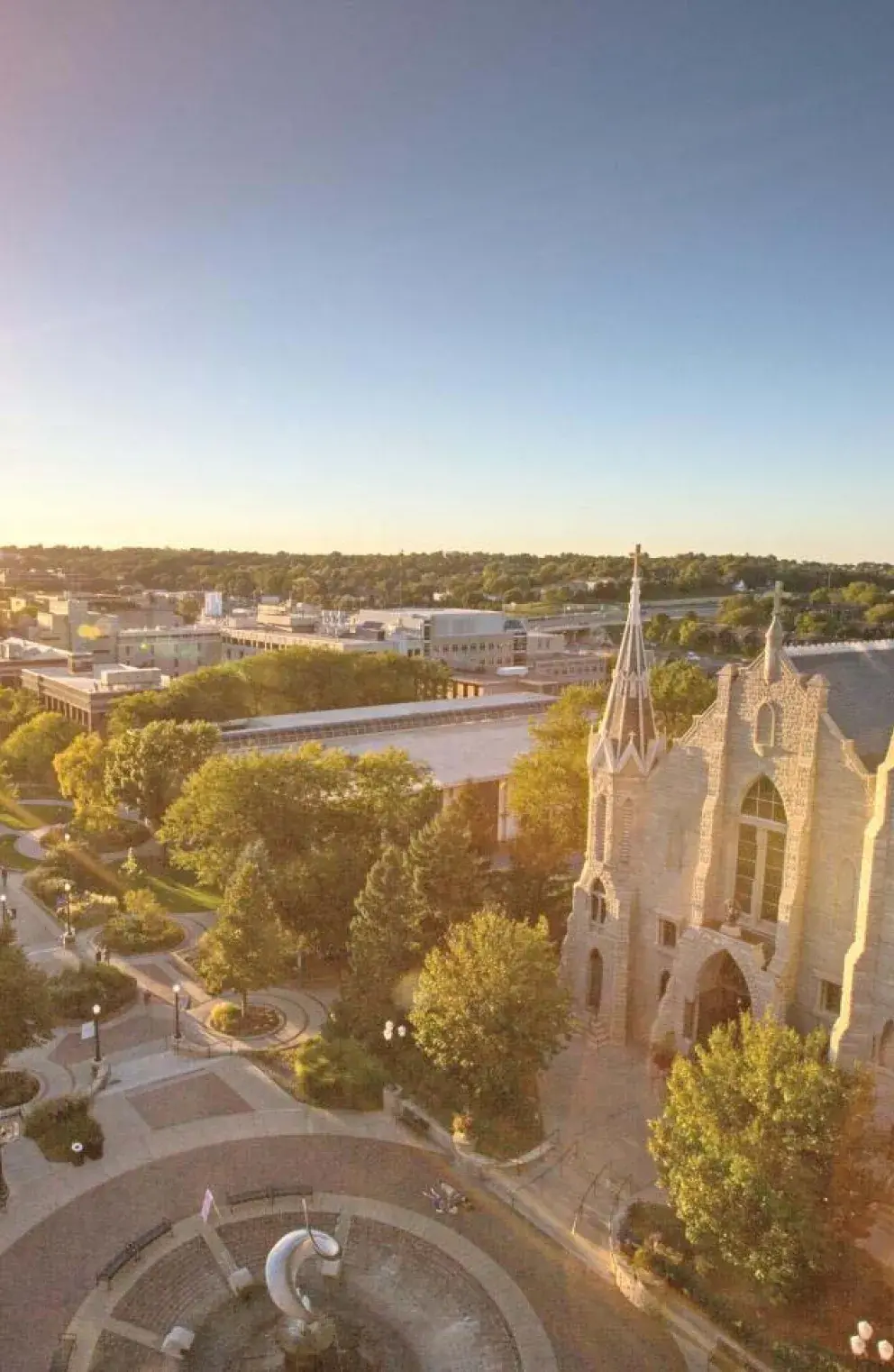
Classical and Near Eastern Civilizations (Bachelor of Arts)
Explore and examine ancient history, customs, myths and events with a bachelor’s degree in classical and Near Eastern civilizations from Creighton. In this major, you’ll develop diverse perspectives through the study of ancient languages.
During the program, you’ll explore the written works and cultures of Greece, Rome and the Near East, and complete three semesters of Arabic, Greek, Hebrew or Latin—or demonstrate an equivalent ability. This program provides you with the critical and creative insights to apply in many careers or a competitive graduate school.
Program Details
Program Goals
This bachelor’s program will enhance your critical thinking skills through the study of classical and ancient Near Eastern languages, literatures, philosophies, religions, history and material culture as you meet and respond to the works and expressions of ancient peoples.
As a classical and Near Eastern civilizations major, you’ll:
- Discover ancient languages, literatures and cultures
- Develop analytical, critical and creative thinking skills
- Analyze and respond to written works and material culture of Greece, Rome and the Near East
Curriculum
Along with Creighton’s core requirements, there are 30 credits within the classical and Near Eastern civilizations curriculum.
Ancient History Minor
In this minor, you’ll study a broad range of history of the Near Eastern, Greek and Roman worlds, with exposure to literary, epigraphic and material remains. The courses also focus on political and social institutions and cultural forms, as well as the dynamic changes in these societies and the interrelationships between them.
Classical and Near Eastern Civilizations Minor
For the classical and Near Eastern civilizations minor, you’ll complete a wide range of courses in the literary, religious, philosophical, political and material culture of the Near Eastern, Greek and Roman worlds. Students will study the institutions of these cultural forms, as well as the dynamic changes in these institutions and how they interrelate.
Admissions Requirements
Creighton admissions are based upon:
- High school GPA
- ACT or SAT scores*
- Extracurricular activities
- Personal statement to demonstrate creative abilities not reflected in your transcripts
- Recommendation from high school counselor
- Honors sections and advanced placement courses will enhance a candidate’s application
*For students who are choosing to apply test-optional, ACT/SAT exam scores are not required at the time of application for admission.
Dates & Deadlines
Applications for the fall semester open on Aug. 1 of the prior year. For scholarship consideration, the earlier you complete your undergraduate application, the better. For up-to-date deadlines, visit our admissions page.
Tuition & Financial Aid
Tuition rates are updated each year. Visit our financial aid site to learn more about the cost of attendance.
Financial Aid
Creighton University’s Financial Aid Office administers over $200,000,000 in student aid each year from federal, state, institutional and private sources.
To help make your undergraduate studies at Creighton University more affordable, we encourage you to file the FAFSA to apply for financial assistance. A variety of scholarships are also available.
You can find many rewarding careers with a classical and Near Eastern civilizations degree. Many students enter pre-professional studies in health sciences or law or go on to become journalists and teachers.
Naturally, our majors move on to competitive graduate schools as well. Since 2000, we’ve had students pursue studies at:
- University of Iowa
- Notre Dame
- University of Texas-Austin
- Emory University
- University of Oregon
- University of California-Irvine
- University of Wisconsin-Madison
- UCLA
- Yale
- Oxford
Eta Sigma Phi
- Eta Sigma Phi is the National Classics Honor Society, of which Creighton University is the Sigma Nu chapter. The society holds a classics quiz bowl called “Mock Certamen” every January for local high school Latin students. In addition, the society holds several events throughout the year, including screenings of films about the Greeks and Romans (“Monty Python’s Life of Brian,” “300,” “Troy,” etc.), bowling and several other social gatherings.








